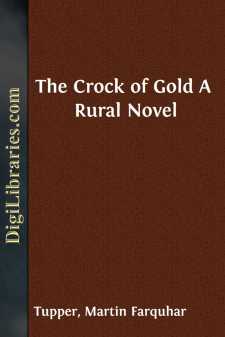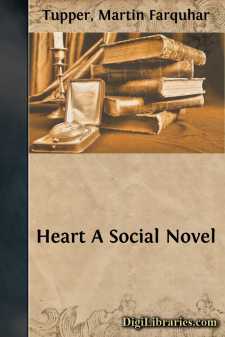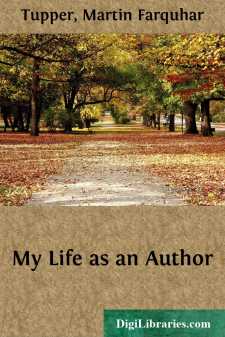Categories
- Antiques & Collectibles 13
- Architecture 36
- Art 48
- Bibles 22
- Biography & Autobiography 813
- Body, Mind & Spirit 142
- Business & Economics 28
- Children's Books 16
- Children's Fiction 13
- Computers 4
- Cooking 94
- Crafts & Hobbies 4
- Drama 346
- Education 46
- Family & Relationships 57
- Fiction 11829
- Games 19
- Gardening 17
- Health & Fitness 34
- History 1377
- House & Home 1
- Humor 147
- Juvenile Fiction 1873
- Juvenile Nonfiction 202
- Language Arts & Disciplines 88
- Law 16
- Literary Collections 686
- Literary Criticism 179
- Mathematics 13
- Medical 41
- Music 40
- Nature 179
- Non-Classifiable 1768
- Performing Arts 7
- Periodicals 1453
- Philosophy 64
- Photography 2
- Poetry 896
- Political Science 203
- Psychology 42
- Reference 154
- Religion 513
- Science 126
- Self-Help 84
- Social Science 81
- Sports & Recreation 34
- Study Aids 3
- Technology & Engineering 59
- Transportation 23
- Travel 463
- True Crime 29
The Twins A Domestic Novel
Description:
Excerpt
CHAPTER I.
PLACE: TIME: CIRCUMSTANCE.
Burleigh-Singleton is a pleasant little watering-place on the southern coast of England, entirely suitable for those who have small incomes and good consciences. The latter, to residents especially, are at least as indispensable as the former: seeing that, however just the reputation of their growing little town for superior cheapness in matters of meat and drink, its character in things regarding men and manners is quite as undeniable for preëminent dullness.
Not but that it has its varieties of scene, and more or less of circumstances too: there are, on one flank, the breezy Heights, with flag-staff and panorama; on the other, broad and level water-meadows, skirted by the dark-flowing Mullet, running to the sea between its tortuous banks: for neighbourhood, Pacton Park is one great attraction—the pretty market-town of Eyemouth another—the everlasting, never-tiring sea a third; and, at high-summer, when the Devonshire lanes are not knee-deep in mire, the nevertheless immeasurably filthy, though picturesque, mud-built village of Oxton.
Then again (and really as I enumerate these multitudinous advantages, I begin to relent for having called it dull), you may pick up curious agate pebbles on the beach, as well as corallines and scarce sea-weeds, good for gumming on front-parlour windows; you may fish for whitings in the bay, and occasionally catch them; you may wade in huge caoutchouc boots among the muddy shallows of the Mullet, and shoot at cormorants and curlews; you may walk to satiety between high-banked and rather dirty cross-roads; and, if you will scramble up the hedge-row, may get now and then peeps of undulated country landscape.
Moreover, you have free liberty to drop in any where to "tiffin"—Burleigh being very Indianized, and a guest always welcome; indeed, so Indianized is it, so populous in jaundiced cheek and ailing livers, that you may openly assert, without fear of being misunderstood (if you wish to vary your common phrase of loyalty), that Victoria sits upon the "musnud" of Great Britain; you may order curry in the smallest pot-house, and still be sure to get the rice well-cooked; you may call your house-maid "ayah," without risk of warning for impertinence; you may vent your wrath against indolent waiters in eloquence of "jaa, soostee;" and, finally, you may go to the library, and besides the advantage of the day-before-yesterday's Times, you may behold in bilious presence an affable, but authoritative, old gentleman, who introduces himself, "Sir, you see in me the hero of Puttymuddyfudgepoor."
You may even now see such an one, I say, and hear him too, if you will but go to Burleigh; seeing he has by this time over-lived the year or so whereof our tale discourses. He has, by dint of service, attained to the dignity of General H.E.I.C.S., and—which he was still longer coming to—the wisdom of being a communicative creature; though possibly, by a natural rëaction, at present he carries anti-secresy a little too far, and verges on the gossiping extreme. But, at the time to which we must look back to commence this right-instructive story, General Tracy was still drinking "Hodgson's Pale" in India, was so taciturn as to be considered almost dumb, and had not yet lifted up his yellow visage upon Albion's white cliffs, nor taken up head-quarters in his final rest of Burleigh-Singleton.
Nevertheless, with reference to quartering at Burleigh, a certain long-neglected wife of his, Mrs. Tracy, had; and that for the period of at least the twenty-one years preceding: how and wherefore I proceed to tell.
A common case and common fate was that of Mrs. Tracy. She had married, both early and hastily, a gallant lieutenant, John George Julian Tracy, to wit, the military germ of our future general; their courtship and acquaintance previous to matrimony extended over the not inconsiderable space of three whole weeks—commencing with a country ball; and after marriage, honey-moon inclusive, they lived the life of cooing doves for three whole months.
And now came the furlough's end: Mr. Tracy, in his then habitual reserve (a quiet man was he), had concealed its existence altogether: and, for aught Jane knew, the hearty invalid was to remain at home for ever: but months soon slip away; and so it came to pass, that on a certain next Wednesday he must be on his way back to the Presidency of Madras, and—if she will not follow him—he must leave her.
However, there was a certain old relative, one Mrs. Green, a childless widow—rich, capricious, and infirm—whom Jane Tracy did not wish to lose sight of: her money was well worth both watching and waiting for; and the captain, whom a lucky chance had now lifted out of the lieutenancy, was easily persuaded to forego the pleasure of his wife's company till the somewhat indefinite period of her old aunt's death....






